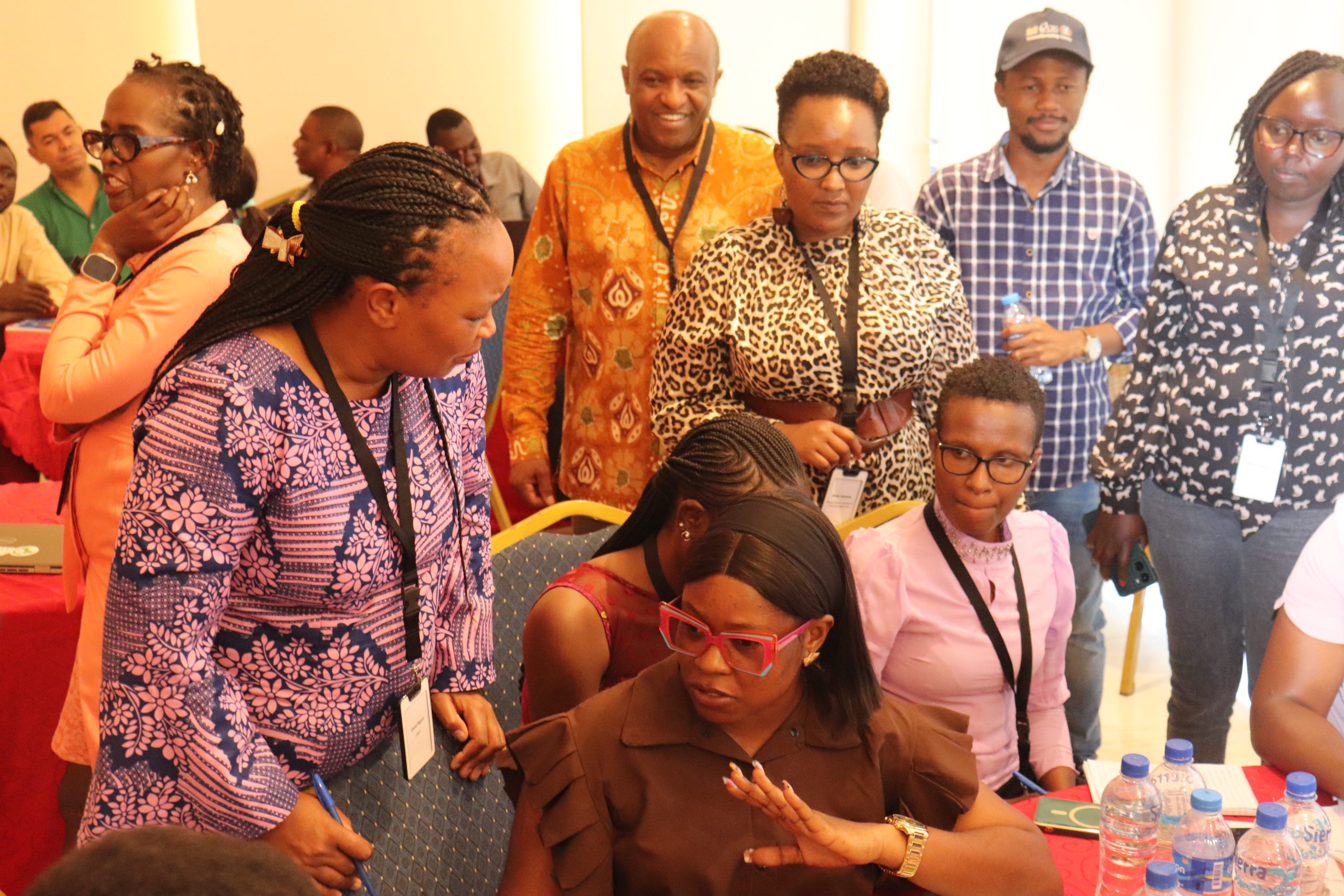The Western Area Peninsula Water Fund Secretariat, in collaboration with the National Water Resources Management Agency (NWRMA), Catholic Relief Services (CRS), and The Nature Conservancy (TNC) have successfully concluded the Regional Water Fund Training held from April 8–10, 2025, in Freetown.
The event brought together over 50 representatives from Sierra Leone and the region to advance Integrated Water Resources Management (IWRM) and climate resilience through the Water Fund model. The three-day training focused on equipping stakeholders with tools and strategies to address water security challenges.
During the opening statements at the training, the Director General of the National Water Resources Management Agency (NWRMA), Junisa P. Bangali, Esq., stated that water security remains a fundamental pillar of national development, as it is intrinsically linked to health, economic prosperity, environmental sustainability, and climate resilience. He said the training affirms participants’ dedication to preserving precious water resources for present and future generations. “We expect participants to use these skills to strengthen implementation, enhance partnerships, and promote innovative conservation financing cross-sector collaboration. We recognize the value of cross-sectoral collaboration. Government agencies, civil society, private institutions, and local communities must work in synergy to achieve sustainable watershed management. We are grateful for the continued support from our partners — The Nature Conservancy and Catholic Relief Services — for fostering an inclusive and participatory approach to water security.” D.G. Bangali said
Key topics included Water Fund design, watershed restoration, stakeholder engagement, sustainable financing, and monitoring frameworks. Participants engaged in dynamic sessions led by experts from NWRMA, CRS, and TNC, fostering knowledge exchange and regional collaboration.
Fred Kihara is the Africa Regional Water Funds Director at The Nature Conservancy. He said Water Funds are mechanisms designed to foster cooperation between communities living upstream and those downstream to protect rivers and water sources through environmentally friendly and sustainable practices. They are public-private partnerships (PPPs) that ensure water security by creating a financial mechanism that pools resources to support upstream communities in conservation efforts. “It is a great opportunity to bring together seven teams that are establishing seven Water Funds across the African continent, to share lessons, advance their knowledge, and harmonize strategies so they can be more effective in their respective countries. He further said the goal is to plan conservation work, mobilize the necessary funds for implementation, and ensure that all efforts benefit nature, improve water supply, and support the communities they serve.
Vivian Okoth is Project Coordinator for the River Yala Nyando Conservation Water Fund in Kenya, and a participant at the training. She said the training was a good start for new water funds like hers, as she learnt how to restructure and define strategic directions. “The most interesting part has been understanding why we have Water Funds. It’s not just about water, but about how water security impacts people’s lives. The conservation work improves environmental health and also supports farming. So, as we conserve nature, we improve both water and environmental security—and ultimately support people’s livelihoods”. Ms. Okoth further said water funds are a critical idea that requires multi-stakeholder engagement. We’ve been reminded of the importance of proper stakeholder analysis and ensuring engagement throughout every stage of development.
Highlights of the event were presentation of certificates, a post-training appreciation dinner and the field visit to Tacugama Chimpanzee Sanctuary, where attendees explored nature-based solutions for watershed protection. Consultative “café sessions” further enabled participants to share experiences and develop actionable plans tailored to local contexts.
The Western Area Peninsula Water Fund (WAPWF) is a $20 million initiative in Sierra Leone, specifically designed to address water security challenges in Freetown and the surrounding Western Area Peninsula. It’s a nature-based, single-basket approach that aims to ensure a reliable and sustainable water supply for the capital city’s population while also protecting the Western Area Peninsula National Park. The Fund has its secretariat at the NWRMA and it is supported by The Nature Conservancy and CRS Sierra Leone
For more information, please contact:
Legal, Regulations and Outreach Dept.
Email: info@nwrma.gov.sl
Tel: +23279072424/ +23277445184

